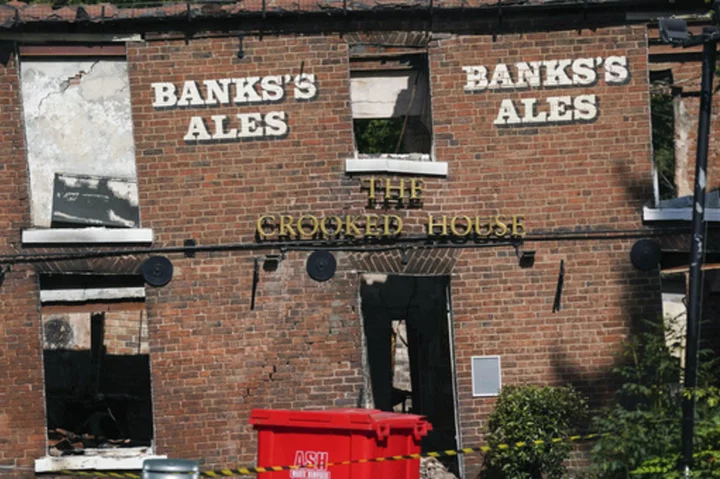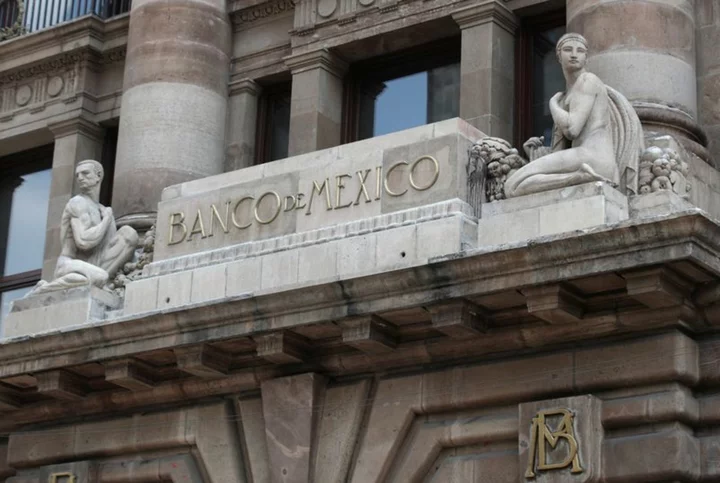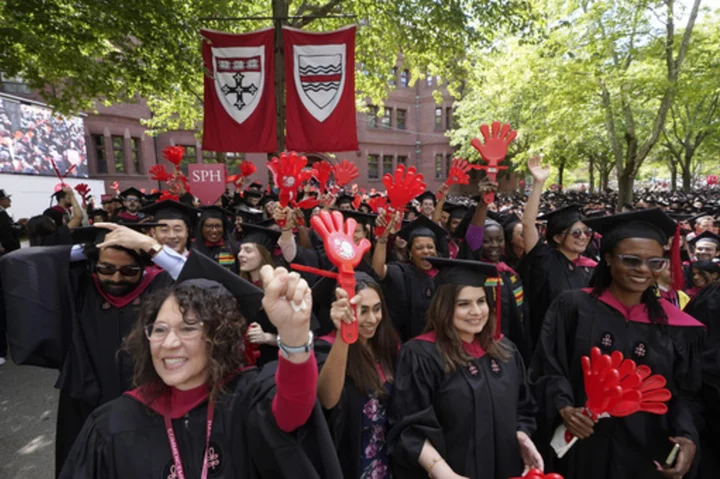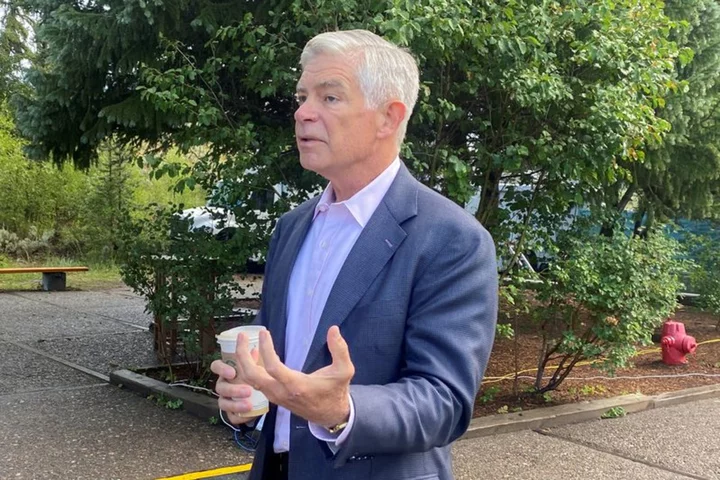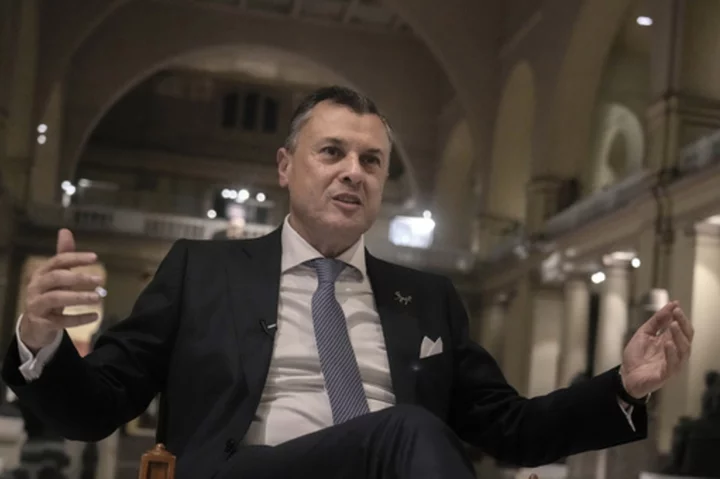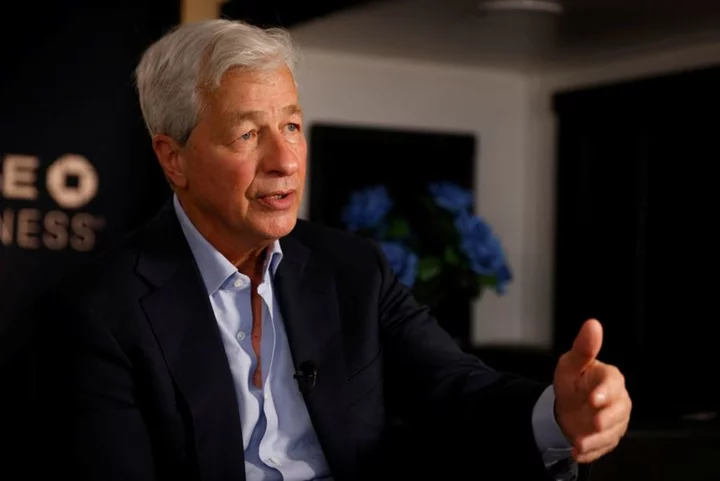LONDON (AP) — Police in central England said Wednesday they were treating a weekend fire at one of Britain's quirkiest pubs as arson, two days after it was demolished before an investigation into the blaze had even been completed.
Staffordshire Police said in a statement that following an assessment from a specialist fire investigator, they believe the fire on Saturday at the 18th-century Crooked House pub in the village of Himley, 130 miles (210 kilometers) northwest of London, “may have been started deliberately.”
The outpouring of anger among local residents following the blaze was compounded on Monday when the shell of the pub — widely revered as “Britain’s wonkiest” as a result of its slumping foundation and sloping walls — was flattened by a mechanical digger.
Given that the cause of the fire, which occurred two weeks after it had been sold by pub and hotel operator Marston’s to a local firm, had yet to be determined, questions have been raised over how the pub ended up being flattened.
“We understand the significance of this much-loved building and the upset and anger felt by many, so want to reassure you we’re doing all we can to understand more about what happened, and who was responsible,” said Detective Chief Superintendent Tom Chisholm, head of specialist crime at Staffordshire Police.
“There are also certain things that police and fire (departments) do not have the powers to deal with — the decision around partial demolition of the building for example — when the scene was handed back to the owner,” he added.
The local South Staffordshire Council has said it was investigating potential breaches of the law over the pub’s demolition.
Chisholm said that there’s “lots of misinformation circulating within communities and online and this is unhelpful” and that police are in contact with fire colleagues and with the landowner.
The pub was originally a farmhouse when it was built in 1765 and subsequently began sinking on one side as a result of extensive coal mining in the local area, which is part of the central England region widely known as the Black Country, in reference to its industrial and mining heyday in the mid-19th century.
Around 1830, it became a pub and was called The Siden House — siden meaning crooked in the local dialect.
In the 1940s, the pub, which had been subsequently renamed the Glynne Arms, was condemned as unsafe and scheduled for demolition. The forebear of Marston’s then purchased the pub and made it safe.
It then became known as The Crooked House and has been a tourist attraction since, with visitors admiring how the building stood the test of time, given that one end of it was a little under four feet (around 1.2 meters) lower than the other.
Long-time regular Paul Turner, who set up an online “Save The Crooked House” petition last month that has attracted more than 13,000 signatures, said he was “absolutely devastated” by the pub’s destruction and backed calls for it to be rebuilt.
“It was something we were proud of as Black Country people,” the 58-year-old Turner said. “It was ours.”
It's not just thirsty regulars urging a rebuild.
Andy Street, the mayor of the West Midlands, said local authorities will “get to the truth” and that he will continue to “keep the pressure on for a rebuild” of the pub.

